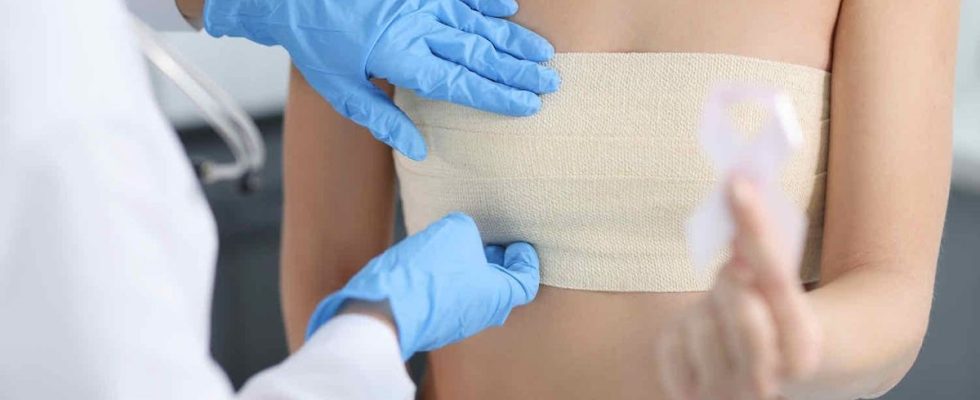Published on
Updated
Reading 2 mins.
In India, blind women palpate the breasts of patients looking for cancerous micro-tumors. Their increased sensitivity to touch would allow better prevention.
Detecting breast cancer at your fingertips. If the idea seems impossible, in India, blind and visually impaired women succeed. At least that’s what a new article broadcast by the BBC.
Improving breast cancer screening
Breast cancer screening consists of a clinical breast examination (palpation performed by a doctor) and a mammogram.
In the absence of visual information, the brains of blind people develop heightened sensitivity to the senses, including touch. According to the unpublished results of Dr. Frank Hoffman, a gynecologist based in Germany, the blind and visually impaired would more effectively detect micro-tumors of the breasts (6 to 8 mm), it is less than masses of 10 to 20 mm than many doctors without visual impairment can find during examinations.
This method, effective and relatively affordable, could soon be extended to other countries, where mammography remains difficult due to its cost and accessibility (low or middle income countries).
Visually impaired women trained in Germany and India
Dr. Frank Hoffmann thus decided to recruit and train blind women in breast cancer screening.
“The majority of physicians are short on time and cannot perform 30-40 minute exams, but a trained non-medical worker with enhanced tactile sense might be ideally placed to do so.“, admits Dr. Hoffmann.
In 2010, Hoffmann’s idea was developed into Discovering Hands, a social enterprise based in Mülheim, Germany, which trains blind and visually impaired women as tactile medical examiners. The first one peer-reviewed study examining the feasibility of the approach showed that the results of these examiners were similar to those of doctors.
In India, nearly 18 women have even started working for this cause in Indian hospitals. The data collected by visually impaired women is then transcribed into a computer and transferred to a doctor, in charge of the diagnosis.
In India, a reduction in mortality and embarrassment of women
A recent Indian study concluded that a clinical breast examination performed every two years by primary health workers could help detect breast cancer at early stages. This could reduce cancer mortality by almost 30% over 20 years in women over 50, according to the study, but no significant reduction in mortality was observed in women under 50.
Another advantage: the use of these examiners would help to reduce the discomfort that women may feel when they undress for a breast examination in front of a clinician without visual impairment. In India, this could potentially increase participation in screenings.
Also, expanding these programs could help more blind girls find jobs.
